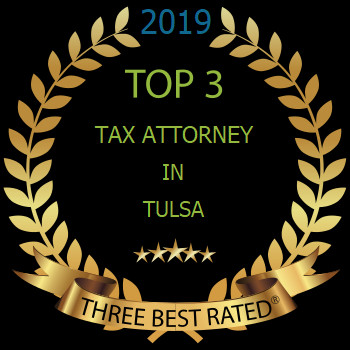With the growth of gambling in Oklahoma, many industries have rushed to provide the needed support and expertise. The area of taxation is no different. Many lawyers and accountants have quickly developed the necessary proficiency to help their clients properly record and report their gambling income. I would like to share with you some of the basic issues so that you may help and at the very least protect the interest of your clients.
Gambling is Big Business in Oklahoma
With the recent proliferation of Indian casinos, most Oklahomans would agree that gambling is big business. But few people truly understand the magnitude of the gambling industry in the Oklahoma economy. Here are some quick facts as of 2010:
- Oklahoma ranks #3 in the nation in number of slot machines with almost 55,000 slot machines.
- Oklahoma has almost 25% of all the tribal casinos in the United States (106 of 456).
- Oklahoma has at least 5 of the largest casinos in the world (measured by square footage of the gaming floor) with the WinStar Casino in Thackerville, OK as the 3rd largest casino in the world with 380,000 square feet.
- The Tulsa and Oklahoma City regional offices of the National Indian Gaming Commission reported gross receipts of $3.2 billion.
And as any visitor to one of Oklahoma’s many casinos could tell you, the preferred game of choice is the slot machines with table games like blackjack and poker a distant second and third.
Basic Income Tax Requirements
Overall, the reporting requirements for gamblers are quite easy. The gambler must report all his gambling winnings as “other income” on the first page of his IRS Form 1040. This includes winnings reported on IRS Form W-2G’s ($1,200 or more for slot machines) as well as any other amounts from any other gambling activities. Then, the gambler must separately report his gambling losses (not to exceed the amount won) on Schedule A. So for example, if a taxpayer over the course of a year won $8,000 in jackpots but spent $10,000 on lottery tickets, pull-tabs, playing blackjack and the slot machines, the taxpayer could only deduct $8,000 of his losses – just enough to offset the amount of his winnings. (Please refer to Internal Revenue Code Section 165(d) which states that “Losses from wagering transactions shall be allowed only to the extent of the gains from such transactions.”)
This separation of winnings and losses can have a serious side effect – the Gambler’s AGI Penalty. If a gambler has gambling winnings equal to the amount of his gambling losses, it will not affect his “Taxable Income.” However, it will inflate the gambler’s “Adjusted Gross Income” (commonly abbreviated AGI) which is frequently used as a multiplier and/or phase-out index for certain deductions, credits and exclusions. Some of the more common items include:
- Social Security
- IRA contributions
- Medical expense
- Mortgage interest
- Charitable contributions
- Casualty losses
- Miscellaneous deductions subject to the 2% limitation
- Child tax credit
- Earned income credit
- Adoption credit
Naïve, lazy or dishonest taxpayers will frequently try to cut corners and “net” together their wins and losses to avoid the Gambler’s AGI Penalty. Unfortunately, such action can easily trigger an audit when the IRS computers cannot match winnings reported by the casinos with a corresponding amount on the taxpayer’s return. And don’t think it won’t happen. The US Tax Court has numerous reported cases where the only change made, at the insistence of the IRS, was the “un-netting” of a gambler’s wins and losses. So what is a taxpayer to do?
The Gambling Session
Over the years, the Courts, IRS and tax professionals have developed the concept of a “Gambling Session.” Early on, the Courts recognized that it was impractical and onerous to even attempt to record every roll of the dice, spin of the wheel, draw of a card or pull of the handle. Essentially, a gambler is allowed to group a together a series of gambling activities when they can be identified by a specific action or activity and discrete, isolated time periods and/or locations.
So, if a gambler plays at one casino in the morning and another casino in the afternoon, then he has at least 2 gambling sessions. If a gambler starts off playing slot machines and then switches to blackjack, then he has at least 2 gambling sessions. But if a gambler enters a poker tournament, the tournament counts as just one session. And, every horse or dog race at a track is a separate gambling session.
In IRS Revenue Procedure 77-29, the IRS describes the information that should be recorded for each gambling session and type of wager. Furthermore, the IRS strongly recommends that a gambler contemporaneously use a “gambling diary” to record the required information. Yet, even after more than thirty years, gamblers are still reluctant to implement such record-keeping efforts.
Instead of relying upon Revenue Procedure 77-29, many gamblers choose to rely on bad advice, urban legends and just wrong information. Many people (gamblers and tax professionals alike) are under the mistaken impression that casino win/loss statements and player’s card reports will suffice. Nothing could be farther from the truth! The IRS has consistently and regularly rejected the use and reliance upon such information. The primary reason for the IRS belligerence is simply because the casinos explicitly state in their reports that the reports are inherently inaccurate and should not be used for accounting purposes.
In multiple court decisions, the judges frequently cry out for a gambling diary. The courts have relied upon all manner of evidence including napkins, calendars and other scraps of paper in an effort to recreate some type of a gambling diary in order to document a gambler’s losses. (In doing so, the court’s frequently rely upon Judge Learned Hand’s 1930 case of George M. Cohan v. Commissioner of Internal Revenue. Mr. Cohan was a Broadway producer and had very few records detailing the production costs of his plays.)
Most people are unaware of the hidden “sin tax” caused by the Gambler’s AGI Penalty. And the best bet (pun intended) is for the gambler to record their gambling sessions in a gambling diary. Don’t forget, prove it or lose it!
Notes
This article was originally published in the April 2011 edition of The Tulsa Lawyer, The Official Publication for the Tulsa County Bar Association, Inc. A PDF reprint of the article is available HERE.

